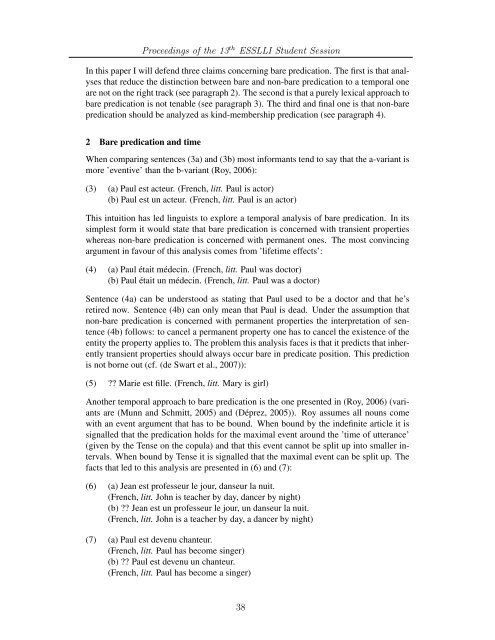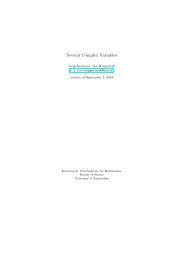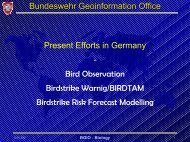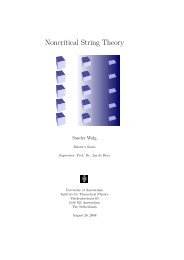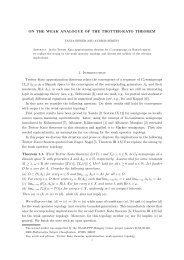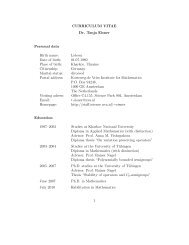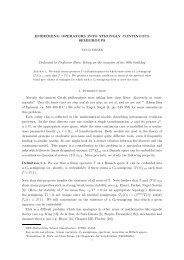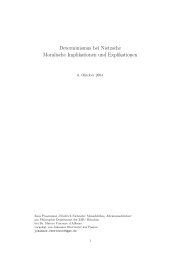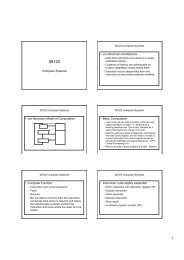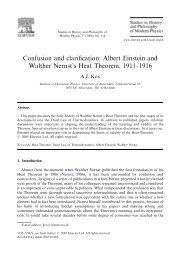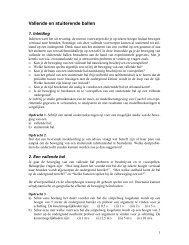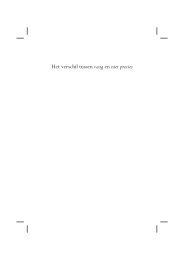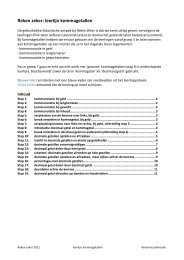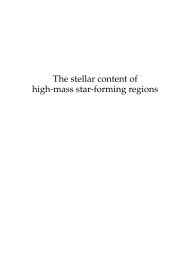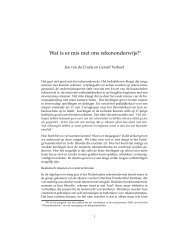Proceedings of the 13 ESSLLI Student Session - Multiple Choices ...
Proceedings of the 13 ESSLLI Student Session - Multiple Choices ...
Proceedings of the 13 ESSLLI Student Session - Multiple Choices ...
You also want an ePaper? Increase the reach of your titles
YUMPU automatically turns print PDFs into web optimized ePapers that Google loves.
<strong>Proceedings</strong> <strong>of</strong> <strong>the</strong> <strong>13</strong> th <strong>ESSLLI</strong> <strong>Student</strong> <strong>Session</strong><br />
In this paper I will defend three claims concerning bare predication. The first is that analyses<br />
that reduce <strong>the</strong> distinction between bare and non-bare predication to a temporal one<br />
are not on <strong>the</strong> right track (see paragraph 2). The second is that a purely lexical approach to<br />
bare predication is not tenable (see paragraph 3). The third and final one is that non-bare<br />
predication should be analyzed as kind-membership predication (see paragraph 4).<br />
2 Bare predication and time<br />
When comparing sentences (3a) and (3b) most informants tend to say that <strong>the</strong> a-variant is<br />
more ’eventive’ than <strong>the</strong> b-variant (Roy, 2006):<br />
(3) (a) Paul est acteur. (French, litt. Paul is actor)<br />
(b) Paul est un acteur. (French, litt. Paul is an actor)<br />
This intuition has led linguists to explore a temporal analysis <strong>of</strong> bare predication. In its<br />
simplest form it would state that bare predication is concerned with transient properties<br />
whereas non-bare predication is concerned with permanent ones. The most convincing<br />
argument in favour <strong>of</strong> this analysis comes from ’lifetime effects’:<br />
(4) (a) Paul était médecin. (French, litt. Paul was doctor)<br />
(b) Paul était un médecin. (French, litt. Paul was a doctor)<br />
Sentence (4a) can be understood as stating that Paul used to be a doctor and that he’s<br />
retired now. Sentence (4b) can only mean that Paul is dead. Under <strong>the</strong> assumption that<br />
non-bare predication is concerned with permanent properties <strong>the</strong> interpretation <strong>of</strong> sentence<br />
(4b) follows: to cancel a permanent property one has to cancel <strong>the</strong> existence <strong>of</strong> <strong>the</strong><br />
entity <strong>the</strong> property applies to. The problem this analysis faces is that it predicts that inherently<br />
transient properties should always occur bare in predicate position. This prediction<br />
is not borne out (cf. (de Swart et al., 2007)):<br />
(5) ?? Marie est fille. (French, litt. Mary is girl)<br />
Ano<strong>the</strong>r temporal approach to bare predication is <strong>the</strong> one presented in (Roy, 2006) (variants<br />
are (Munn and Schmitt, 2005) and (Déprez, 2005)). Roy assumes all nouns come<br />
with an event argument that has to be bound. When bound by <strong>the</strong> indefinite article it is<br />
signalled that <strong>the</strong> predication holds for <strong>the</strong> maximal event around <strong>the</strong> ’time <strong>of</strong> utterance’<br />
(given by <strong>the</strong> Tense on <strong>the</strong> copula) and that this event cannot be split up into smaller intervals.<br />
When bound by Tense it is signalled that <strong>the</strong> maximal event can be split up. The<br />
facts that led to this analysis are presented in (6) and (7):<br />
(6) (a) Jean est pr<strong>of</strong>esseur le jour, danseur la nuit.<br />
(French, litt. John is teacher by day, dancer by night)<br />
(b) ?? Jean est un pr<strong>of</strong>esseur le jour, un danseur la nuit.<br />
(French, litt. John is a teacher by day, a dancer by night)<br />
(7) (a) Paul est devenu chanteur.<br />
(French, litt. Paul has become singer)<br />
(b) ?? Paul est devenu un chanteur.<br />
(French, litt. Paul has become a singer)<br />
38


